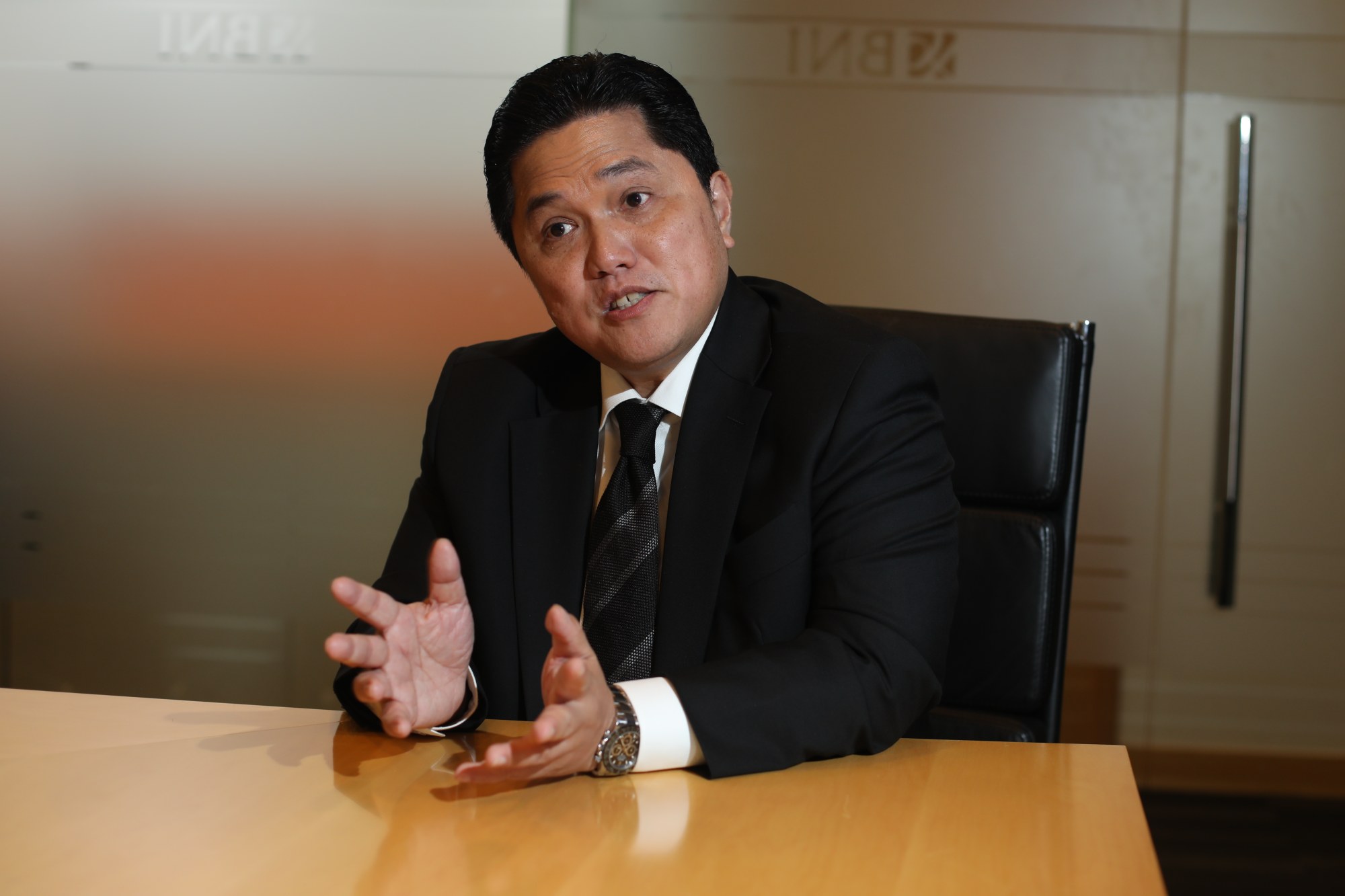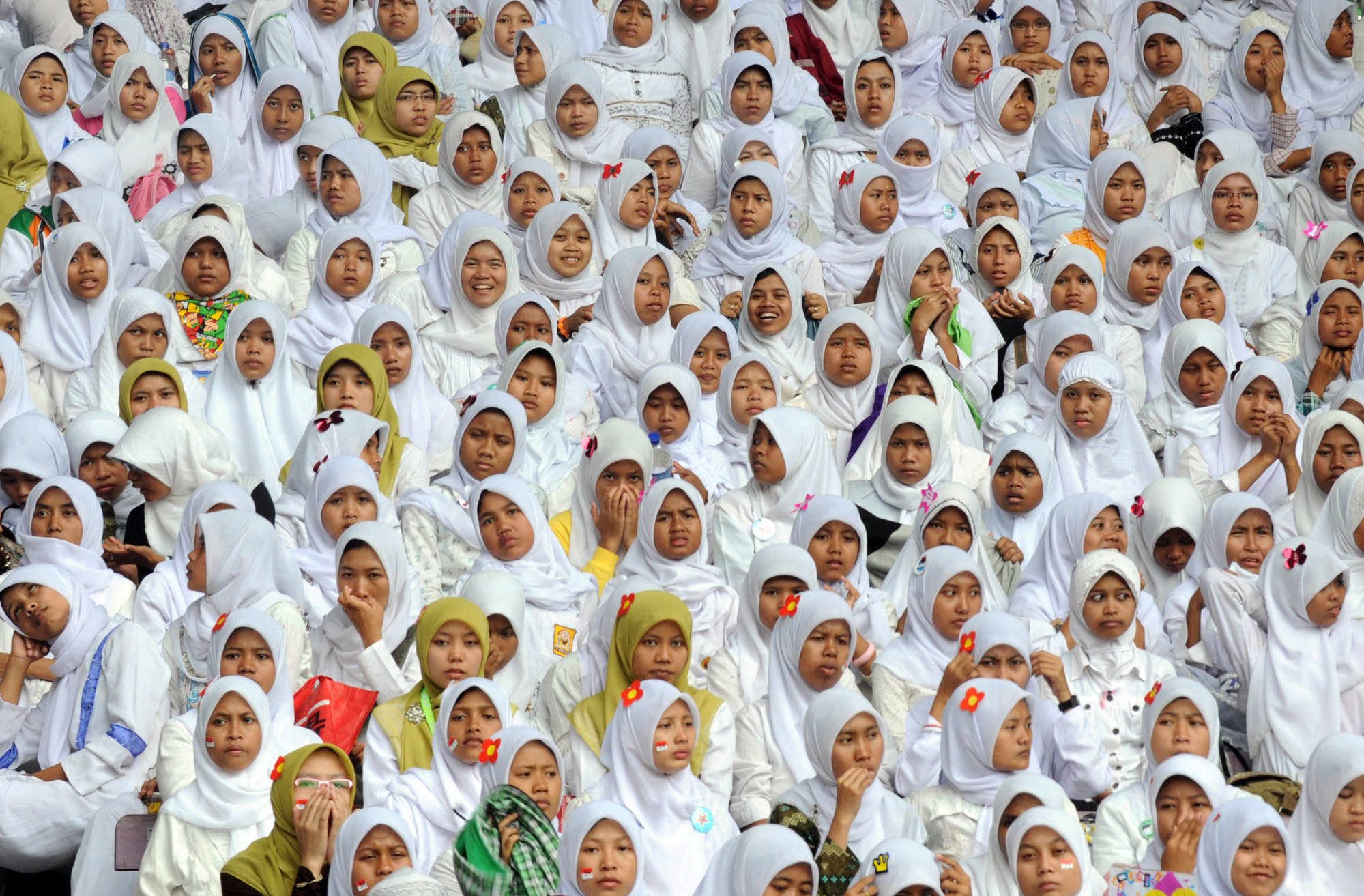
Indonesia presidential poll: can Anies Baswedan and running mate win with ‘total opposite’ ideals?
- Anies’ unexpected pick could be an effort to garner support from Indonesia’s biggest Islamic party, and to portray himself as a ‘more moderate’ politician
- A ‘very conservative’ PKS, one of Anies’ supporting parties, contrasts with his VP pick’s ‘moderate’ PKB that could cause internal tension, warn analysts
In a speech on Saturday, the former Jakarta governor announced his vice-presidential pick to be Muhaimin Iskandar, chairman of the National Awakening Party (PKB) that has close ties to Indonesia’s biggest Islamic organisation, Nahdlatul Ulama (NU).
Jokowi the kingmaker? Search for a successor grips Indonesia’s ruling party
In a poll released by research firm Saiful Mujani Research and Consulting in late August, Ganjar led in the three-way race with 35.9 per cent, Prabowo had 33.6 per cent and Anies had 20.4 per cent. But in a two-way contest between the top two candidates, Prabowo was in the lead by 3 per cent.
With candidate registration fast approaching in October, Prabowo and Ganjar have yet to name their vice-president choices. But Anies joining hands with Muhaimin may just shake things up, say observers.

Softening his image
Anies, a US-educated politician with a doctorate in political science, is often viewed in stark contrast to the moderate Widodo. His close ties with conservative Muslim parties and past inclination towards identity politics have given him a polarising image among voters.
But observers say his pairing with Muhaimin could be an effort to change that.
“I think Anies wants to soften his image into a more moderate, more tolerant Islamic politician rather than his earlier image as a very traditional and conservative figure,” said Alexander R. Arifianto, a senior fellow with Singapore’s S. Rajaratnam School of International Studies’ Indonesia programme.
Indonesia’s conservative wrath, scams take centre stage ahead of Coldplay gig
Muhaimin’s ties with the country’s largest Islamic organisation, NU, which boasts some 40 million members, might be the answer.
“NU has a decades-long reputation for declaring itself as a moderate Islamic organisation promoting pluralism and tolerance,” Arifianto said. “Anies is hoping he will be able to bring voters from the NU into his camp.”
Running with Muhaimin means his PKB party will join Anies’ coalition, which could go a long way in broadening Anies’ reach, said Yoes Kenawas, a political researcher from pollster Lembaga Survei Indonesia (LSI).
The stark differences between Anies’ conservative followers and the supporters of the NU could pose a risk
While Anies has strong support in Indonesia’s most populous province West Java, his influence in Central and East Java, the second and third-most populous provinces, is fairly weak. However, these two areas have long-been strongholds of Muhaimin’s PKB party and the NU.
Observer Arifianto said Anies’ move to pick Muhaimin would be less surprising if one had watched his campaign trail closely.
“Anies has been campaigning a lot in East Java province, which is the heartland of the NU,” he said. “Anies wouldn’t be doing it without the cooperation or knowledge of a leading NU figure like Muhaimin.”
Internal conflict
But experts are also wary of the potential for tension and infighting within Anies’ camp with the joining of Muhaimin’s PKB party. Of particular concern is the reaction of the Islamist Prosperous Justice Party (PKS).
“One of Anies’ main parties is the PKS, which is almost the total opposite of the PKB, as it is a party with a very conservative platform,” said Arifianto. “So to align a moderate PKB and get support of the moderate NU figures with the conservative PKS might not work very well.”
While the PKB secretary last Friday said the NU had given its blessing to the Anies-Muhaimin pairing, the NU central board was quick to refute any assertions linking the organisation to a particular candidate in the 2024 presidential race.

“There should not be any [presidential] contenders that [present themselves] on behalf of the NU. If there are any, they are doing it on their own capacity and track record,” the NU’s central board’s chief Yahya Cholil Staquf said on Saturday.
“I’m afraid the stark differences between Anies’ conservative followers and the supporters of the NU could pose a risk ,” said LSI’s Yoes.
“If they can’t reconcile the differences between the two, especially if certain issues regarding Islam emerge during the campaign, this might lead to some internal fighting,” he said.
Arifianto concurred, adding that Muhaimin joining Anies might not be enough to sway PKB or NU voters that have been against Anies and the PKS’ conservative stances.
Russia and Ukraine jostle for support of world’s largest Islamic group
A survey by pollster Indikator Politik conducted in July showed only 25 per cent of voters who support the PKB would back Anies as president, compared with 40 per cent for Ganjar and 30 per cent for Prabowo.
The Anies-Muhaimin pairing also drew the ire of the Democratic Party, which has since withdrawn from Anies’ Coalition of Change for Unity (KPP).
Anies had been expected to pair with Agus Harimurti Yudhoyono, chairman of the Democratic Party and the elder son of former president Susilo Bambang Yudhoyono.
“Let’s begin a new chapter, and we have to move on quickly,” Agus told reporters on Monday. “The Democratic Party will try to join another electoral alliance that has similar viewpoints, platforms and political ethics.”

